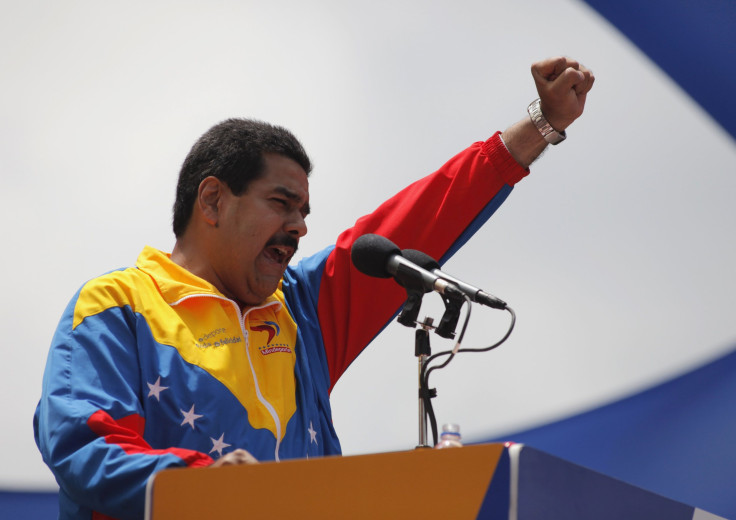Diplomacy War Or Political Theater? Maduro Ramps Up Anti-US Rhetoric As Venezuelan Elections Approach

The U.S. and Venezuela have both expelled diplomats from each other’s countries amid high political tensions in the South American nation following the death of President Hugo Chávez last week, ahead of new elections.
Hours before the Venezuelan government announced Chávez’s passing last Tuesday, Caracas expelled two U.S. Air Force attachés. The U.S. followed in kind, dismissing two Venezuelan diplomats on Sunday.
“Around the world, when our people are thrown out unjustly, we’re going to take reciprocal action,” Victoria Nuland, the State Department spokeswoman, said in a statement on Monday. “And we need to do that to protect our own people.”
The Venezuelan government justified its action, saying that the attachés were engaged in efforts to destabilize the country during a time of political vulnerability.
It has been suggested that Venezuela’s acting president and the socialist presidential candidate Nicolas Maduro expelled the attachés to appease supporters of his predecessor in preparation for elections scheduled for April 14. Maduro also recently accused the U.S. government of giving Chávez cancer, from which he died after a two-year battle.
“Maduro is shoring up political support within Chavismo,” said Carl Meacham, Americas Director of the Center for Strategic and International Studies in Washington, the Miami Herald reported.
“His charges against the United States and his expulsion of the two U.S. diplomats were his way of telling his followers, ‘I’m like Chávez,’” he added. “We can expect his rhetoric to get worse in coming weeks.”
While the odds are in Maduro’s favor in the upcoming election -- due to state control over the media and a surge of sympathetic support in the wake of Chávez’s death -- it will nevertheless provide an opportunity for the opposition to displace the governing socialist party, which has been in power for more than 14 years since Chávez first took office in 1999.
Opposition candidate Henrique Capriles Radonski has said that he would pursue better ties with “countries that have democracies,” indicating a desire to improve relations with the U.S. without mentioning it by name amid an atmosphere of opposition to Washington, promoted by the socialist party.
"The foreign policy of this government is driven by politics -- to extend a revolution worldwide. My objective with regards to foreign relations is to benefit all Venezuelans," Capriles said, while running against Chávez last year, the Guardian reported.
“We are interested in countries that have democracies, that respect human rights, that we have an affinity with," he added, while criticizing Venezuela’s ties with Russia, Iran and Belarus.
The socialists have characterized Capriles as wanting to make Venezuela subservient to U.S. interests, while Maduro vows to uphold his mentor Chávez’s ideology.
During his tenure, Chávez was notoriously antagonistic toward the U.S. government, often criticizing its foreign and economic policies -- especially the wars in Iraq and Afghanistan initiated under the administration of President George W. Bush, whom he famously referred to as “El Diablo” at a United Nations summit in 2006.
He had also expressed disdain for President Barack Obama, referring to him as a “clown” in 2011 after the president criticized Venezuelan ties with Cuba and Iran.
Neither country has hosted each other’s respective ambassadors since 2010.
Maduro, as vice president had previously taken a more conciliatory tone toward the U.S., even suggesting the two countries reinstate their ambassadors, but as the election approaches, his rhetoric has become more like his mentor’s.
“We do hope for better relations with Venezuela,” the State Department's Nuland said. “There is work that we would like to do together, particularly in the areas of counterterrorism, counternarcotics, economics and energy relations, but it’s going to take a change of tone from Caracas.”
© Copyright IBTimes 2024. All rights reserved.





















